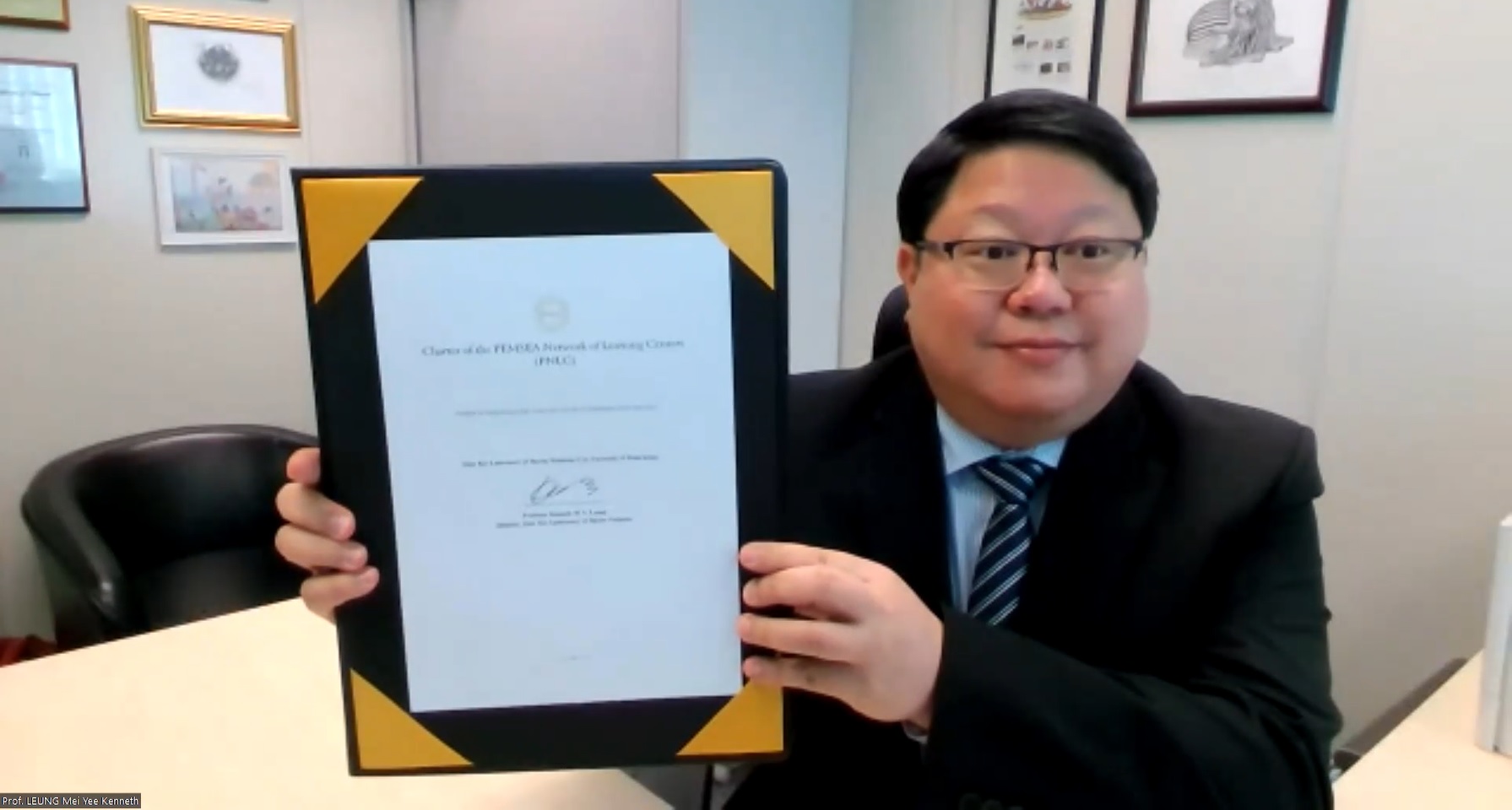
CityU’s State Key Laboratory of Marine Pollution (SKLMP) had been officially designated as a Regional Centre of Excellence in Marine Pollution by the Partnership Council of the Partnerships in Environmental Management for the Seas of East Asia (PEMSEA).
As a Regional Centre of Excellence (RCOE), SKLMP will regularly organise training workshops and offer research collaboration opportunities for environmental scientists and practitioners in the region regarding pollution monitoring and assessment, underwater surveys and ecological restoration technologies.
As an intergovernmental organisation operating in East Asia, PEMSEA consists of governmental representatives from 14 countries with a mission to foster and sustain healthy and resilient coasts and oceans in the region through integrated management solutions and partnerships. Including SKLMP, there are currently four PEMSEA-RCOEs which focus on building capacities, sharing knowledge and providing scientific inputs to policies, programmes and projects that are aimed to enhance the health and resilience of the Seas of East Asia.
The cooperation between PEMSEA and SKLMP started in 2004 through joint marine pollution actions and knowledge exchange. The partnership was eventually formalised in 2008 when the consortium, which was still known as the Centre for Marine Environmental Research and Innovative Technology (MERIT) at the time, was designated as the first RCOE because of its expertise and experience in marine pollution management.
When MERIT funding ended in 2010, the SKLMP consortium was created by CityU. With over 50 cross-disciplinary researchers from eight partner universities in Hong Kong SAR, SKLMP is dedicated to developing multidisciplinary and innovative solutions to address marine pollution problems that pose a significant threat to the environment and public health. It works on themes such as eco-safety and environmental risk assessment, ecosystem responses and ecological restoration, and innovative technology for pollution monitoring and control.
Professor Kenneth Leung, the Director of SKLMP and Associate Dean (Research & Postgraduate Education) of the College of Science, commits on behalf of SKLMP to continue the consortium’s longstanding cooperation with PEMSEA partners, the PEMSEA Resource Facility, and members of the PEMSEA Network of Learning Centers. He also highlighted the Global Estuaries Monitoring (GEM) Programme of SKLMP, which is one of the endorsed initiatives of the UN Decade of Ocean Science.

